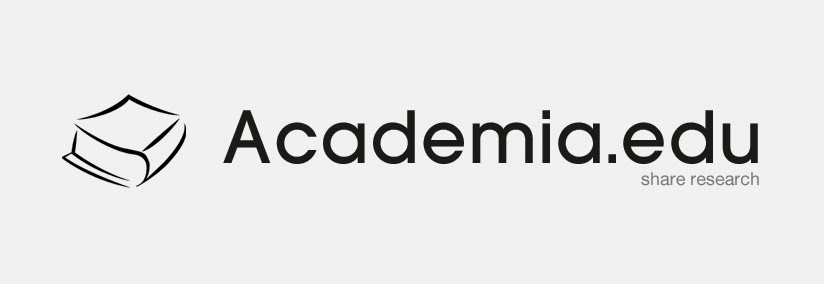The Role of Waste Banks in Community Economic Empowerment in The Review of Maqashid Sharia Perspective
Abstract
This research aims to describe the role of the Berkah waste bank in Cinta Makmur Village in empowering the community’s economy from a maqashid sharia perspective. The research uses qualitative methods by means of field observations, interviews with related sources and is supported by several sources such as books, journals and other documents. The results of this research show an increase in fulfilling basic needs, increasing income, increasing independence, and environmental cleanliness. The mechanism for managing the Berkah waste bank is that the community collects their waste, it is collected by the waste bank team, then weighed and recorded in a book. After that, the waste bank team sorts the waste and then sells it to collectors. The role of the Berkah waste bank is very
good in managing and sorting waste into goods. which has economic value, so that it can improve the economy of its customers. Islam also teaches us to always maintain cleanliness, with the formation of this waste bank cleanliness begins to be fulfilled. This research has limitations, including that the researcher is limited to observing the running process of the waste bank at any time because the waste bank program schedule is irregular due to officers not being able to regularly pick up the waste. Apart from that, this research is limited to examining the role of the waste bank in empowering the community in improving the economy. and researchers limited the research area to Cinta Makmur Village.
Keywords
Full Text:
PDFReferences
Abidin (2019) ‘Maqashid Syariah Menurut Al Tahir Ibn Asyur’.
Baisuri, A. and Ahmad (no date) ‘Nadhariat Al Maqashid’Inda al Imam al Shatibi’, 2016 [Preprint].
Bakri and Jaya, A. (1996) ‘Konsep Muqashid Syariah Menurut Al Syathibi’.
Fauzan, H. (2023) ‘Pemikiran Maqashid Syariah Al-Tahir Ibn Asyur’, al-Mawarid Jurnal Syariah dan Hukum (JSYH), 5(1), pp. 101–114. Available at: https://doi.org/10.20885/mawarid.vol5.iss1.art7.
Fauzia, I.Y. (2016) ‘“Urgensi implementasi Green Economi Perspektif pendekatan Dharuriyah Dalam Maqashid Al-Syariah”’, 2, p. 90.
Marliyah, M., Dharma, B. and Syahbaini, A.M.B. (2024) ‘Distributing Zakatu Kasbil’Amal as an Alternative to Student Funding, Evidence in Indonesia’s Universities’, 13.
Marliyah et al. (2022) ‘Islamic Integrative Approach as Survey Model’, Indonesia journal of Islamic Literature and Muslim society, 7.
Marliyah, Dharma, B. and Syarbani, A.M.B. (2023) ‘The Maturity of Risk Management in Indonesian Islamic Universities’, Jurnal Riset Bisnis dan Manajemen, 16.
Mawardi and Imam, A. (2010) ‘Fiqh Minoritas Fiqih Aqalliyat dan Evolusi Maqashid Syariah Dari Konsep ke Pendekatan’.
Muhyidin (2017) ‘Pemberdayaan Masyarakat Melalui Program Inovasi Pembangunan dan Pemberdayaan Kewilayahan’, Jurnal pengembangan masyarakat islam, 2.
Nuddin, H. (2023) Imam Masjid, Wawancara.
Nur Aulia, R. (2015) ‘Pemberdayaan Ekonomi Komunitas Muslim Melalui Bank Sampah Studi Kasus Majlis Talim Alkaromah Kelurahan Pejuang Kecamatan Medan Satria Bekasi’, Jurnal Studi Al-Qur’ani, 11.
Prastiyantoro, D.A. (2017) ‘Partisipasi Masyarakat Terhadap Pengelolaan Bank Sampah Gemah Ripah Badegan Bantul’.
Rohmani, N. (2021) ‘Peranan bank sampah dalam pemberdayaan ekonomi masyarakat pada Bank Sampah NTB Mandiri (Lingkungan Banjar Kelurahan Banjar Kec. Ampenan Kota …’.
Sarinah, I. (2019) ‘Pemberdayaan Masyarakat dalam Bidang Ekonomi oleh Pemerintah Desa Pangandaran Kecamatan Pangandaran Kabupaten Pangandaran’, Jurnal Moderat [Preprint].
Sri Suryani, A. (2018) ‘Peran Bank Sampah Dalam Efektifitas Pengelolaan Sampah (Studi Kasus Bank Sampah Malang)’.
Sukanto (2016) ‘Formulasi Strategi Kebijakan Pemberdayaan Ekonomi Rakyat Kabinet Indonesia Kerja Dalam Perspektif Ekonomi Islam’, 7.
Sunarto, Z., Afrida, P.N. and Nurianti, U. (2022) ‘Kajian Maqashid Al-Shari’ah Terhadap Nilai-Nilai Islami pada Sebuah Transaksi’, HAKAM Jurnal Kajian Hukum, 6(1), pp. 1–17. Available at: https://ejournal.iainbengkulu.ac.id/index.php/Al-Intaj/article/download/1110/957.
Suryani, A.S. (2014) ‘Peran Bank Sampah Dalam Efektivitas Pengelolaan Sampah (Studi Kasus Bank Sampah Malang)’, Aspirasi, 5(1), pp. 71–84.
Syah Latuconsina, M.M. (2017) ‘Potensi Ekonomi Melalui Pengolahan Sampah Dalam Perspektif Islam’, 3.
Wahyuning wirdiati, I. (2015) ‘“Pengelolaan Sampah Berbasis “Zero Waste” Skala Rumah Tangga Secara Mandiri’, jurnal Sains dan Teknologi Lingkungan, 4.
Yudiyanto, Yudhistira, E. and Tania, A.L. (2019) ‘Pengelolaan Sampah Pengabdian Pendampingan Kota Metro’, Lembaga Penelitian dan Pengabdian Pada Masyarakat, 6(11), pp. 1–80.
DOI: https://doi.org/10.21107/mediatrend.v19i1.25263
Copyright (c) 2024 Media Trend


















